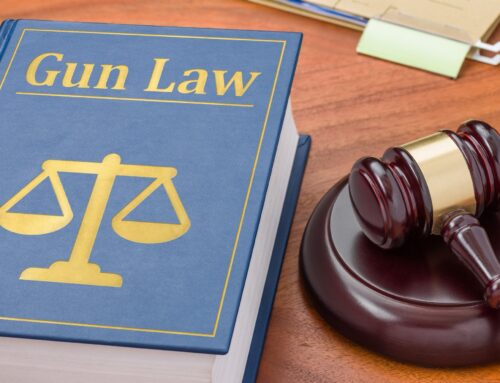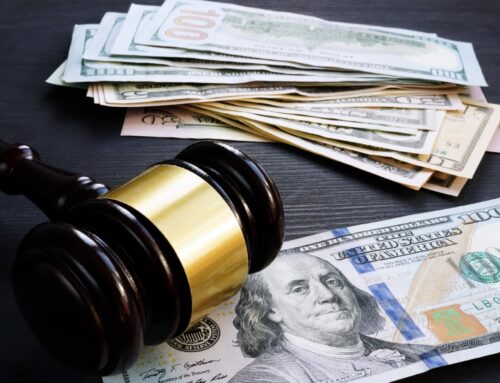Are you aware that 30% of all traffic-related deaths in the United States were the result of alcohol-impaired driving crashes? Undeniably, the implications of this statistic are grim, and they underline the importance of understanding and adhering to the laws surrounding driving under the influence (DUI). This article aims to shed light on the question, “Is a DUI considered a criminal offense?” and delve into the repercussions that come with a DUI charge.
What Is a DUI?
DUI stands for “Driving Under the Influence.” It’s a term we often hear, but what does it really mean?
It refers to the act of operating a vehicle while one’s mental and motor skills are impaired by alcohol or other substances. Impairment often comes from the consumption of alcohol, hence the common term “drunk driving.” However, it’s crucial to note that drugs, including prescription medication and illegal substances, can also lead to a DUI charge if they affect your ability to drive safely.
Every state in the U.S. has laws that make it illegal to drive with a blood alcohol concentration (BAC) of 0.08% or higher. This BAC level is generally accepted as the point at which an individual is considered too impaired to drive safely.
However, drivers can be arrested and charged with a DUI even if their BAC is under this limit if their driving is negatively impacted. It’s worth noting that the rules are stricter for commercial drivers and those under the legal drinking age of 21.
Alcohol and drugs can significantly impact an individual’s ability to operate a vehicle safely. Impaired drivers can experience:
- Reduced motor control
- Blurry vision
- Poor judgment
- Slower reaction times
These can all lead to dangerous situations on the road. As such, drunk driving is a serious issue that can result in property damage, injury, or even loss of life.
Despite public awareness campaigns and strict legal penalties, many people still make the dangerous decision to drive while impaired. While some individuals might feel they can manage driving after having a few drinks, the reality is that any level of intoxication can increase the risk of a car accident. The decision to drive under the influence puts not only the driver at risk but also passengers, other drivers, and pedestrians.
Is a DUI Considered a Criminal Offense?
In a word – yes. In most states in the U.S., a DUI is indeed classified as a criminal offense. It falls under criminal law because driving while drunk or under the influence of drugs poses a risk to public safety.
It’s critical to grasp that the law treats a DUI charge very seriously, with potential penalties that can significantly impact a person’s life.
Differences Between Misdemeanors and Felonies
Typically, a DUI is categorized as a misdemeanor, especially for first-time offenders. However, certain factors can elevate a DUI charge to a felony – a more serious form of crime.
For example, if an individual has multiple DUI offenses within a specific timeframe, the subsequent charge could be classified as a felony. Felony charges also arise if the DUI incident results in injury or death to another person. Having a minor in the vehicle during a DUI incident can escalate the charge, as can having a significantly high blood alcohol concentration.
Variations by State
In the United States, DUI laws and their enforcement vary by state. While all states set a blood alcohol concentration (BAC) limit of 0.08% for standard adult drivers, there are differences in other areas of DUI regulations.
For instance, the “Zero Tolerance” laws for drivers under 21 years of age differ. Some states enforce a BAC limit of 0.02% or lower for underage drivers, while others have a strict 0.00% limit.
States also vary in the severity of penalties for DUI offenses. Consequences such as fines, license suspension periods, mandatory installation of ignition interlock devices, and jail time can differ greatly from one state to another. Some states also escalate penalties for repeat offenders more rapidly than others.
Some states employ a “lookback” or “washout” period, which determines how long previous DUI convictions will count against an individual when considering penalties for a new DUI charge. These periods can range anywhere from five to 15 years, depending on the state.
Furthermore, the availability and requirements for diversion programs, which allow first-time offenders to avoid a criminal record, vary widely. Some states offer such programs, while others don’t.
Interactions with Employment and Travel
Being convicted of a DUI, either as a misdemeanor or a felony, can have ramifications beyond legal penalties. It can impact employment opportunities as potential employers often conduct background checks and may be hesitant to hire someone with a criminal record. Additionally, certain countries, such as Canada, can deny entry to individuals with a DUI conviction.
The Consequences of a DUI Charge
Driving under the influence brings a host of legal penalties that can significantly impact an individual’s life. The severity of these penalties often depends on the circumstances surrounding the incident and whether it’s a first-time offense or a repeat violation.
Common penalties for a DUI conviction include hefty fines, probation, mandatory alcohol education programs, community service, and even imprisonment. An individual may also face suspension or revocation of their driver’s license, making everyday tasks like commuting to work, school, or running errands incredibly challenging.
A DUI conviction can have particularly serious consequences for individuals who hold a commercial driver’s license (CDL). CDL holders include individuals who operate commercial vehicles for a living, such as:
- Truck drivers
- Bus drivers
- Drivers of certain types of heavy machinery
A DUI conviction often leads to a suspension of the offender’s CDL. In many states, the first DUI offense results in a one-year suspension.
For a second offense, the CDL may be revoked permanently. If the DUI occurred while the driver was operating a vehicle transporting hazardous materials, the suspension period could be even longer.
For those convicted of a felony DUI, the penalties are even more severe. They may face longer jail sentences, larger fines, and extended license suspension periods.
Additionally, felony DUI convicts might have to install an ignition interlock device on their vehicles. This device requires the driver to pass a breathalyzer test before starting the car, further ensuring they are not attempting to drive while impaired.
Impact on Insurance
A DUI charge will also likely affect an individual’s car insurance. Insurance companies see those with DUI convictions as high-risk drivers, causing insurance premiums to skyrocket. Some companies might even refuse to provide coverage.
Effect on Employment
A DUI conviction can also jeopardize current employment and future job prospects. Certain professions, like teaching, law enforcement, and roles that require driving, may not be accessible for individuals with a DUI record. Furthermore, the time needed for court appearances and fulfilling legal obligations, like community service, might interfere with work schedules and obligations.
Social and Personal Ramifications
The social and personal impacts of a DUI charge are often overlooked but can be just as severe as the legal consequences. A DUI conviction can lead to strained personal relationships and societal stigma. It can also affect mental health, leading to stress, depression, or anxiety, particularly for those dealing with the legal system for the first time.
Long-Term Consequences
The repercussions of a DUI charge can linger long after the legal penalties have been fulfilled. A criminal record can follow an individual for years, affecting various aspects of their life.
In some cases, a DUI conviction can be expunged, or removed from an individual’s criminal record. However, the process varies by state and often requires meeting very specific criteria and going through a legal process.
Potential Defenses Against DUI Charges
One approach to defending against a DUI charge is questioning the legality of the initial traffic stop. Law enforcement officers must have a valid reason to stop a driver, such as a traffic violation or erratic driving. If the defense can prove the stop was baseless, any evidence obtained during the stop may be ruled inadmissible in court.
Here are some other potential defenses that can be used against DUI charges:
Questioning Field Sobriety Tests
Field sobriety tests are often used by police to determine if a driver is impaired. However, these tests can be flawed.
Factors such as the driver’s physical condition, weather, or even the type of shoes worn can affect the test results. A skilled defense attorney can argue that the results are not reliable evidence of intoxication.
Scrutinizing Breathalyzer Results
Breathalyzer tests are commonly used to measure a driver’s blood alcohol concentration. But these devices are not infallible.
They must be correctly calibrated and administered to provide accurate results. Mishandling or malfunction of the device can lead to incorrect readings.
Medical Conditions and Other Factors
Certain medical conditions or even diets can result in false positives on breathalyzer tests. Conditions such as acid reflux or diabetes, and diets like the ketogenic diet, can produce compounds in the body that a breathalyzer may interpret as alcohol. Providing evidence of such a condition or factor can be used as a defense.
Improper Police Conduct
Police officers must follow specific protocols during a DUI stop and arrest. Any deviations, like failure to read the driver their rights or mistreatment, can be grounds for a defense. Violations of the defendant’s rights can lead to a dismissal of the charges.
Necessity and Duress
Though rare, the defenses of necessity and duress might apply in some DUI cases. If the driver can prove they were forced to drive under the influence to avoid a greater harm, it may be a valid defense. However, this strategy often requires substantial evidence and legal expertise to present effectively.
How Legal Representation Can Help
The legal system can be a labyrinth of complex laws and procedures. An experienced attorney knows how to navigate this system. They understand the ins and outs of DUI laws, court protocols, and the strategies used by prosecution.
This knowledge can help level the playing field and ensure a fair trial for the accused.
Assessing the Case
An experienced DUI attorney can assess the details of the case to determine the best defense strategy. They can evaluate the circumstances of the arrest, the results of sobriety tests, and the behavior of law enforcement officers. By looking at all aspects of the case, they can identify any inconsistencies or potential violations of rights.
Presenting Effective Defenses
As we discussed earlier, there are numerous potential defenses against a DUI charge. However, presenting these defenses in court requires knowledge and skill. An experienced attorney knows how to effectively argue these defenses, present evidence, and cross-examine witnesses.
Negotiating Plea Deals
If fighting the charge is not the best option, an attorney can negotiate a plea deal with the prosecution. This might involve pleading guilty to a lesser charge, like reckless driving, that carries fewer consequences. An experienced attorney knows how to negotiate these deals to secure the best possible outcome.
Support Throughout the Process
A DUI charge can be a stressful and emotionally draining experience. An attorney can provide guidance and support throughout the process.
They can answer questions, explain what to expect, and provide reassurance. Knowing there’s a professional advocating for their rights can provide comfort to those facing a DUI charge.
Post-Conviction Assistance
The role of an attorney doesn’t end with the verdict. If convicted, an attorney can assist with the post-conviction process. This might involve:
- Appealing the decision
- Seeking to expunge the conviction from the individual’s record
- Navigating probation requirements
Involving a legal representative in your DUI case is not just about legal tactics and courtroom strategies. It’s about having someone who understands the stress and fear that come with a DUI charge. It’s about having an advocate who will fight for you and your future.
Make the Right Decision
So, is a DUI considered a criminal offense? Yes, it is indeed considered a criminal offense and carries potentially severe and long-lasting repercussions. Facing a DUI charge can be daunting, but understanding your rights and options can make a significant difference.
A knowledgeable legal partner can help turn a stressful situation into an opportunity for a fresh start. That’s where we come in. At Miksis Law PLLC, we’re dedicated to presenting client-focused strategies that highlight your strengths while minimizing weaknesses.
When faced with a DUI charge, remember that you don’t have to navigate this difficult journey alone. Reach out to us for a consultation today.







